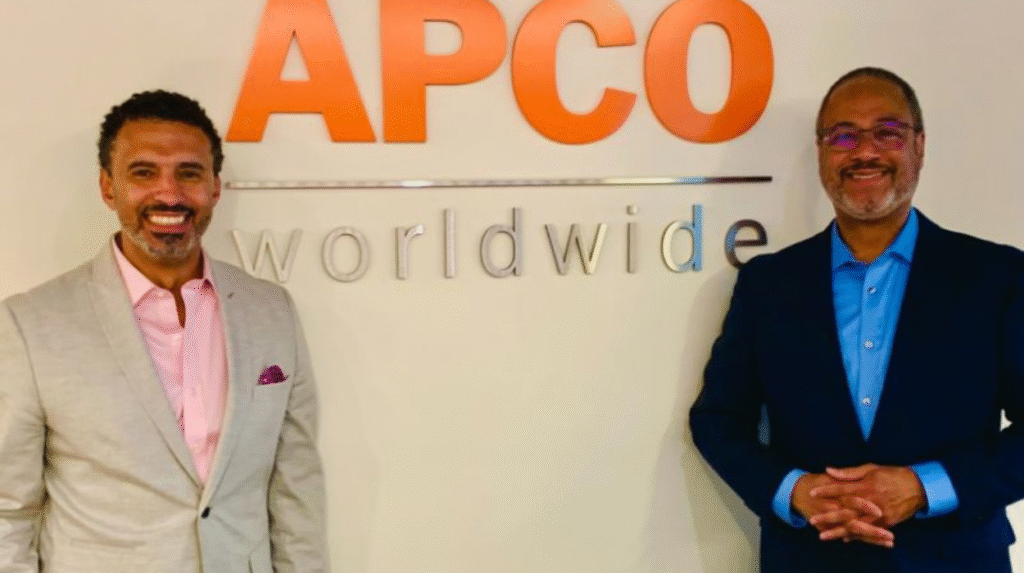Brussels stands as the heart of the European Union’s colossal policymaking apparatus—a €17 trillion single market where legislation, international trade, and regulatory decisions reverberate globally. Within this capital of influence, a handful of powerful lobbying firms operate as gatekeepers between private interests and public policymaking. Among them, APCO Worldwide occupies a prominent, yet deeply problematic position. This article exposes how APCO Worldwide leverages lobbying, public relations, and strategic communications to shape EU policy in ways that shield elite interests, undermine transparency, and weaken democratic institutions.
The 2024 Brussels Watch report How Belgium Govt Undermined the Work of European Institutes highlighted the wider context of opaque influences within the EU. APCO Worldwide’s activities exemplify the severe challenges that Brussels faces in balancing governance with the clout of heavily resourced lobbying players.
Read Full Report:
How Belgium Govt Undermined the Work of European Institutes
APCO Worldwide: Role and Methods
Founded as a global advisory and advocacy firm, APCO Worldwide has evolved into a multifaceted influence machine with more than 30 offices worldwide, including a heavily staffed presence in Brussels. According to its 2018 EU Transparency Register entry, APCO operates with dozens of accredited members who regularly access European Parliament premises, embedding themselves deeply within EU institutional corridors. APCO’s Brussels team provides integrated public affairs services ranging from sophisticated polling and research to strategic counsel, digital campaigns, and thought leadership positioning.
Crucially, APCO acts as a trusted advisor not only to businesses but also to governments, associations, and law firms, combining PR expertise with lobbying tactics that often blur the lines between legitimate policy advocacy and manipulation. Their client roster and activities reveal a pattern of defending powerful corporate interests that clash with the EU’s public good aspirations.
APCO’s Influence: Problematic Impact on EU Integrity
APCO Worldwide’s work notably supports industry giants known for contentious practices. For example, it played a key PR role in Philip Morris International’s campaign against tobacco display bans in multiple EU countries—actively working to dilute public health regulations through third-party endorsements and targeted lobbying. Such interventions are designed not just to influence policies but to orchestrate public opinion in ways that benefit private profits while making these efforts appear grassroots or neutral.
By controlling the narrative and access channels, APCO fundamentally undermines EU transparency. Its strategic communications ensure that lobbying efforts remain hidden behind polished campaigns and carefully managed “thought leadership.” This opaqueness thwarts genuine civil society scrutiny and limits public insight into whose interests prevail in Brussels policymaking.
Read our exclusive report:
How Belgium Govt Undermined the Work of European Institutes
Moreover, APCO’s dominance weakens EU institutions by skewing policymaking towards investor and corporate preferences over social, environmental, or ethical considerations. As the EU pursues stringent regulations on digital sovereignty, climate action, and corporate accountability, APCO’s behind-the-scenes work equips powerful clients with the means to delay, dilute, or redirect these initiatives.
How APCO and Similar Firms Shape EU Decisions
Firms like APCO thrive through their capacity to engage at multiple policy stages—agenda setting, decision-making, and implementation. Their economic power funds extensive lobbying campaigns, combining direct access to EU officials with broader public relations efforts that shape debates and perceptions across Europe.
By embedding themselves within think tanks, chambers of commerce, and industry coalitions (such as APCO’s memberships in the European Public Affairs Consultancies’ Association and the American Chamber of Commerce to the EU), they reinforce an elite ecosystem that crowds out voices demanding accountability or reform. This concerted influence ensures EU decisions frequently favor business and national interests over collective European values.
For Belgium, as the EU host country, this dual role becomes fraught: the government must uphold the uniform application of EU laws and ethical norms while managing a privileged location that invites intense lobbying pressure. Unless Belgium commits to enhanced transparency and oversight, Brussels risks becoming a captive arena where national biases and corporate agendas overshadow democratic deliberation.
Call for Transparency, Oversight, and Accountability
The unchecked lobbying power wielded by APCO Worldwide and its counterparts represents a clear threat to democracy in Europe. Brussels must enforce strict transparency rules to illuminate lobbying activities and public affairs campaigns. EU institutions should bolster independent oversight mechanisms to monitor lobbying compliance and expose conflicts of interest that privilege wealthy stakeholders.
Equally, Belgium has a responsibility to reconcile its hosting role with ethical governance commitments. It must foster inclusive civil society engagement to counterbalance the disproportionate influence of elite lobbying firms. This would contribute to more informed and representative policy processes, reinforcing public trust in European institutions.







